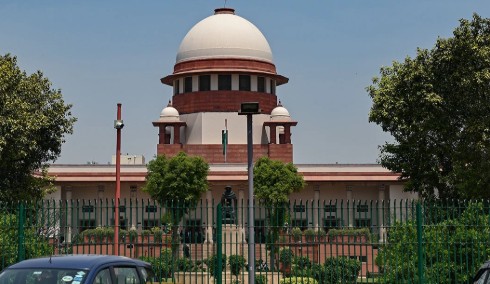
New Delhi: The Supreme Court dismissed a petition challenging the continuation of the five-year ban on the Students Islamic Movement of India (SIMI). A bench comprising Justices Vikram Nath and Sandeep Mehta declined to hear the plea against the order passed on July 24, 2024, by the Unlawful Activities (Prevention) Act (UA) tribunal.
The tribunal, formed under the UA, was created after the central government decided to extend SIMI’s ban for another five years starting January 29, 2024. Its role was to determine whether sufficient grounds existed to declare SIMI an outlawed organization.
SIMI was originally banned in 2001 during the government of Atal Bihari Vajpayee, and its ban has since been periodically renewed. The organization was founded on April 25, 1977, at Aligarh Muslim University, initially as a front organization for youth and students aligned with Jamait-e-Islami-Hind. However, in 1993, SIMI declared itself an independent entity.
During the hearing, the petitioner’s lawyer stated that the tribunal had upheld the government’s order to extend SIMI’s ban for the ninth time. The lawyer also noted that the ban has been in place since September 2001, and there are ongoing cases challenging the ban in the Supreme Court. He requested the bench to issue a notice and merge his petition with the pending cases.
When the lawyer revealed that the petitioner was a former member of SIMI, the bench questioned why he was involved, suggesting that the organization itself should be present if it still existed. The lawyer argued that SIMI no longer exists, but the bench responded, asking how this affects the legal case. The lawyer claimed that there are unresolved legal issues and that the government does not acknowledge that SIMI is now defunct. Ultimately, the court refused to entertain the plea.
The tribunal had confirmed the five-year extension, asserting that SIMI had not abandoned its goal of Jihad and continued to work toward establishing an Islamic rule in India. The government had justified the extension by stating that SIMI was involved in encouraging terrorism and disturbing peace and communal harmony in the country.
